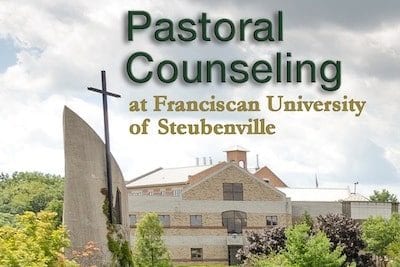When searching for a concrete definition of pastoral counseling, one may come across many definitions that vary in their descriptions of what pastoral counseling is or what it looks like in different settings. The adjective, pastoral, suggests to many that pastoral counseling is counseling that is exclusively done by a pastor, priest, or other religious authority figures. To others, the adjective may lead them to think that it is spiritual direction, while others may simply believe that pastoral counseling is counseling that is done at a parish or religious setting. So, which idea or definition can we trust best describes the reality of what pastoral counseling is?
Well, why not start with the actual definition for the adjective pastoral, since that is key in distinguishing this form of counseling.
pas·to·ral
adjective
1. (especially of land or a farm) used for or related to the keeping or grazing of sheep or cattle.
“scattered pastoral farms”
2. (in the Christian Church) concerning or appropriate to the giving of spiritual guidance.
synonyms: priestly, clerical, ecclesiastical, ministerial
“his pastoral duties“
Evidently, pastoral contains a Christian origin pertaining to the value of providing spiritual guidance, a form of spiritual care to individuals. In David Benner’s Care of Souls, we learn that Christianity views pastoral counseling as a form of soul care, namely “care of souls”, which originates from the Latin concept of cura animarum. The Latin word cura contains the idea of both care and cure, while the Latin word animarum translates to “soul”. Furthermore, animarum roots in its Greek translation of nepesh and Hebrew translation of psyche, which respectively refer to: (1) life, and the inner person, particularly thoughts, feelings, and passions, and (2) the totality of a person, physical life, mind, and heart (Brenner, 1998). Many biblical scholars suggest that the best single word for both nepesh and psyche is either “person” or “self”. In summation of all of these translations from which the concept of “care of souls” originates from, pastoral counseling, from a Christian standpoint, can thus be understood as the efforts done to provide care and cure to the person as a living and vital whole.
According to William Clebesch and Charles Jaekle, there are four elements that are involved in Christian soul care:
1. Healing—the efforts to help someone overcome impairment and move toward wholeness.
2. Sustaining—the acts of caring designed to help a hurting person endure and transcend a circumstance in which restoration or recuperation is either impossible or improbable.
3. Reconciling—the efforts to reestablish broken relationships.
4. Guiding—helping people make wise choices and thereby grow in spiritual maturity
Healing, sustaining, reconciling, and guiding. Elements that are also involved in professional mental health counseling. So, what does this say about pastoral counseling? It is the support and restoration of the well-being of a person in his or her depth and totality, with particular concern for the inner life (Benner, 1992).
The following quote from Benner’s Care of Souls has really given me a deeper and personal understanding of pastoral counseling: “Jesus’ approach to soul care was based upon his conviction of the immense worth of persons.” As a Christian Catholic and professional counselor-in-training, being a pastoral counselor means that I have a responsibility and obligation to provide the most appropriate and adequate professional care to my clients to meet their needs, whether those needs are psychological, emotional, spiritual or a mix of all, because I am aware of their God-given dignity and worth as children of God. As a pastoral counselor, I am also a representative of the Church, meaning that my professional practice and personal lifestyle must reflect the Christian values regarding both the caring and curing for the person, who is body, soul, and spirit. In other words, as a pastoral counselor, I have the responsibility to treat my clients in a holistic way, being cautious to never neglect one aspect of their being. According to Benner (1992), pastoral counseling can be both pastoral and psychologically informed when it takes its identity from the rich tradition of Christian soul care and integrates appropriate insights of modern therapeutic psychology in a manner that protects both the integrity of the pastoral role and the unique resource of Christian ministry.






